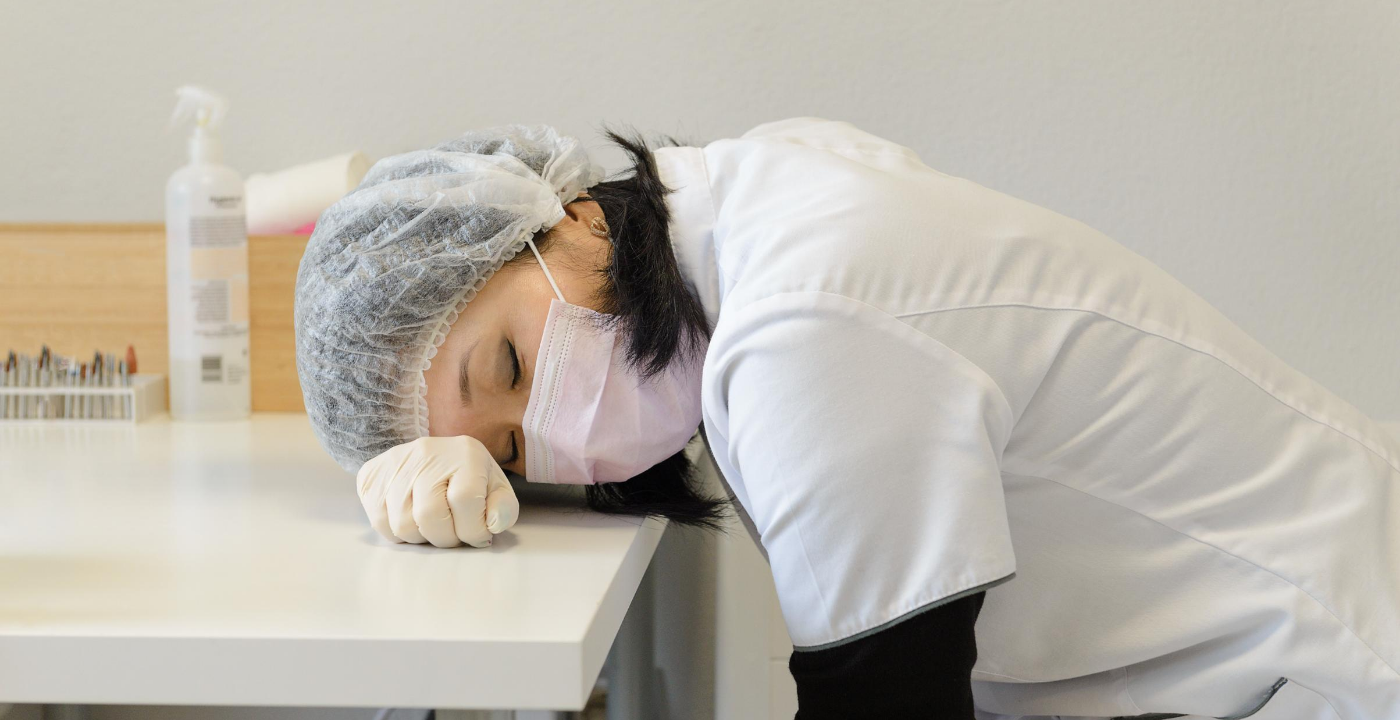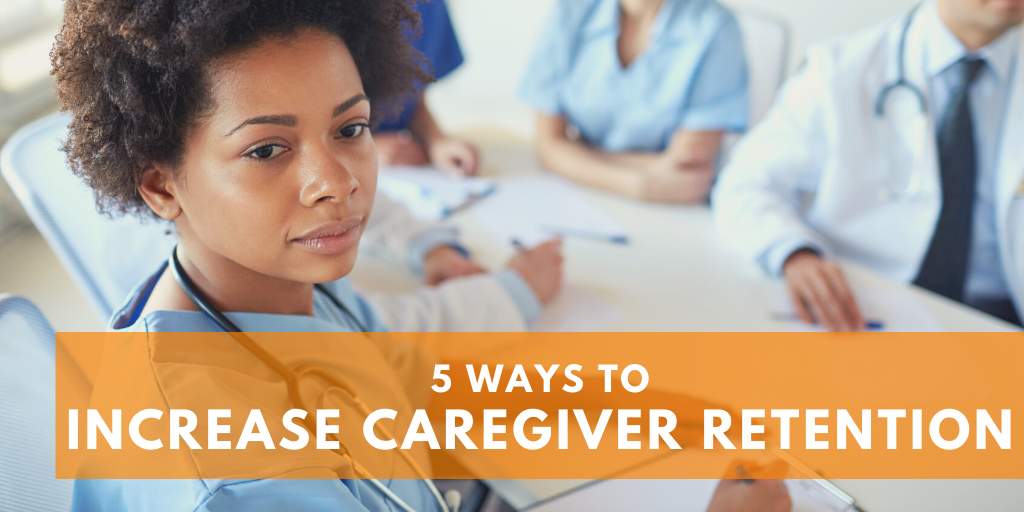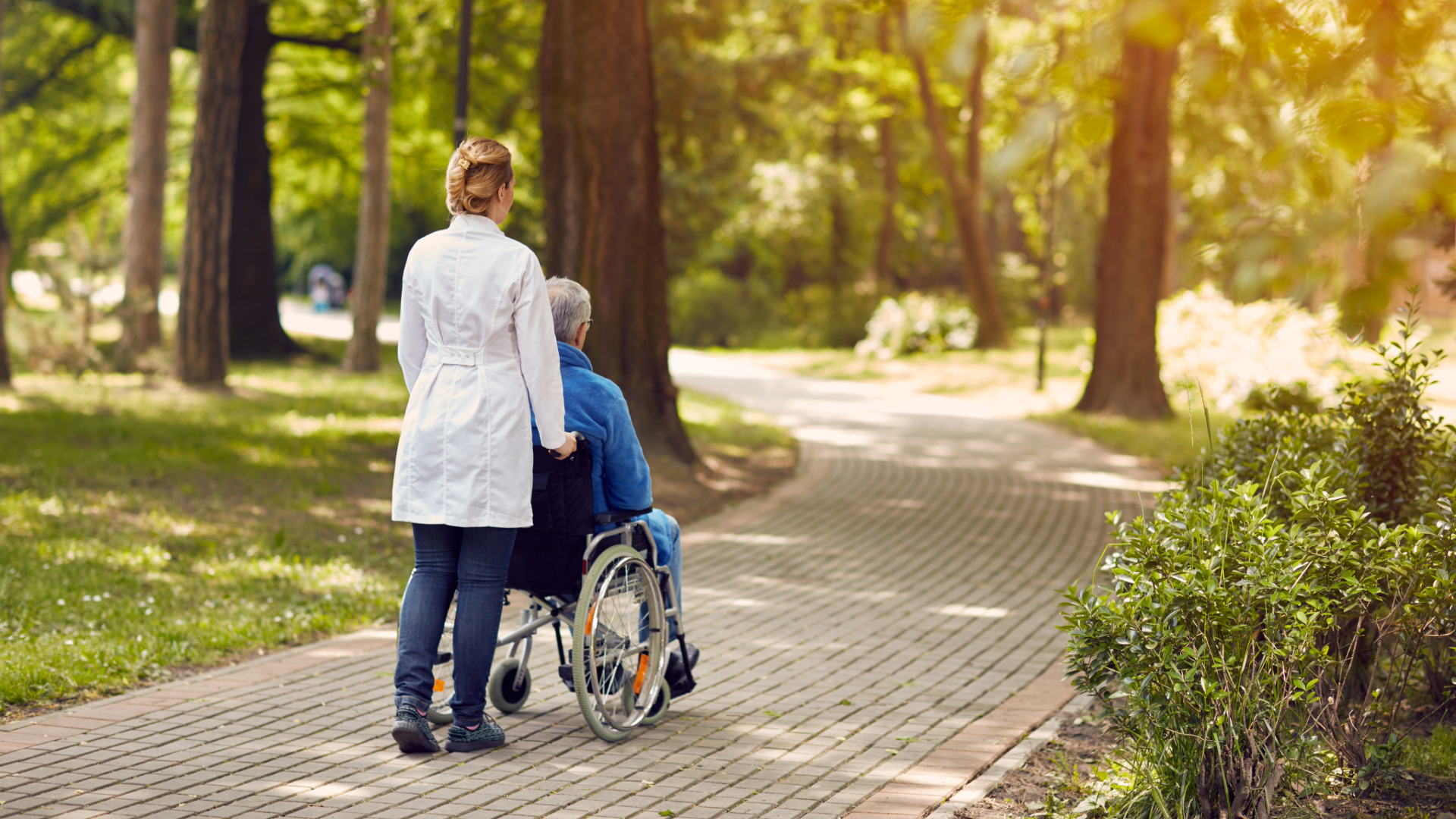Poor sleep can lead to medical mistakes. Help prevent caregiver fatigue by promoting good sleep habits at your organization.
Due to his severe physical disabilities at birth, doctors did not expect Dennis to live beyond his first birthday. Despite the original prognosis, he made it well beyond his first year to the age of 25. Unfortunately, he died before reaching his next milestone.
Two weeks before his death, Dennis was found unresponsive when his caregiver checked on him in the morning. The oxygen mask that helped keep him alive failed. His blood oxygen levels were well below the danger zone. He was transferred to the hospital where he was diagnosed with the hypoxic brain injury due to lack of oxygen that would eventually kill him.
On the night of his tragedy, Dennis had been neglected for eight hours – the caregiver was supposed to check on him every two hours. After his death, authorities were alerted that the caregiver responsible for checking on Dennis throughout the night routinely fell asleep on the job, reports Syracuse.com.
Ultimately, the caregiver pled guilty to a felony charge of endangering the welfare of an incompetent or physically disabled person.

While national and state statistics are hard to come by, according to the New York Daily News and consulting firm ThinkReliability, caregivers falling asleep is “all too common.” Two state agencies in Ohio and New York reported over 500 cases of incidents involving sleeping caregivers in 2014.
It’s easy to dismiss these statistics as a problem with hiring irresponsible staff members, but when placed against the alarming rates of caregiver fatigue and burnout, it paints a much grimmer picture.
According to NPR, about 45% of healthcare workers self-reported getting six hours of sleep or less nightly. Seven hours or more is the recommended, optimal amount for adults. While an extra hour or two of sleep doesn’t seem like a big deal on the surface, it is just one of the many factors that result in poor sleep quality which, in turn, results in sleep deprivation. According to numerous studies, including this one from Current Health Sciences Journal, sleep deprivation has a high correlation with medical mistakes.
In short, sleep quality is a patient safety issue, but it’s also a caregiver retention issue. According to the CDC, lack of sleep is associated with pain. Healthcare workers, who already have a higher prevalence of musculoskeletal disorders, are more likely to “suffer more days away from work for back pain than any other occupation.” Additionally, poor sleep quality has been linked to long-term health problems, including, heart disease, stroke and anxiety – any of which could potentially shorten the career of a professional caregiver significantly. For an industry that is already experiencing high understaffing and turnover rates, it is critical that any measures to reduce these obstacles should include a program that promotes healthy sleep habits.
Finally, sleep quality is a liability issue. Sleep deprived caregivers are not only more likely to make medical mistakes, they are also more likely to be in an accident themselves. According to a study published on the National Library of Medicine’s website, “sleep disturbances are a significant predictor of occupational injuries.” Incidents involving sleep deprived nurses, even some that have occurred off-premises, have led to civil suits against employers. CNN reports that a Cincinnati hospital was involved in a wrongful death suit when a nurse died after falling asleep at the wheel. The lawsuit claimed that the nurse had suffered fatigue because she had been overworked due to staffing shortages at the hospital.
Why do healthcare workers suffer from sleep deprivation?
Healthcare professionals are not alone in struggling to get adequate sleep. Researchers looking at the National Health Interview Survey, “found the prevalence of inadequate sleep, defined as seven hours or less, increased from 30.9% in 2010 to 35.6% in 2018” for the general population. Our increased connectivity, extra-curricular activities and overall stress are thought to be factors leading to reduced sleep.
.png?width=600&name=Copy%20of%20Copy%20of%20GHP%20CTA%20(2).png)
These factors are amplified for healthcare professionals. It’s no secret that the role of a healthcare worker is not an easy one. It’s a physically and emotionally demanding job. Nurses, physicians, aides and caregivers are subject to long hours, shift work and traumatic situations, including workplace violence. All of these can exacerbate and contribute to poor sleep.
What can my organization do to help improve our caregivers’ sleep?
Promote healthy sleep habits
While a good proportion of life’s stressors are unavoidable in today’s world, there are steps that caregivers can use to combat stress with self-care. Educate staff on the importance of a good night’s sleep and what they can do to help achieve it. Here are some simple solutions to get you and your caregivers started:
- Create a bedtime routine. This should go beyond the typical brushing your teeth and getting on your pajamas. A solid bedtime routine allows for your body and your mind to prepare for sleep. Consider adding meditation or journaling to your bedtime routine.
- Avoid caffeine 4-6 hours before bedtime.
- While regular exercise can help improve sleep quality, it’s important to time it right. Avoid rigorous exercise 4 hours before bedtime.
- Power down electronic devices at least a half hour before sleep. The blue light that smart phones, tablets and computers emit can make falling asleep more difficult.
- Eat a healthy diet, and eat meals at regular intervals.
- Take uninterrupted breaks during the workday if possible.
- Prepare your room for sleep. According to the Sleep Foundation, this includes setting the thermostat to a cooler temperature, around 66 degrees, and darkening the room as much as possible. The Sleep Foundation also recommends trying a white noise machine or a humidifier to help create an ambience that promotes sleep.
- Invest in a good mattress. Mattresses tend to last only 10 years, so if you’ve spent a decade sleeping on the same one, chances are it’s time to upgrade.
Implement shift policies that allow caregivers to recover
Whenever possible, limit the number of hours caregivers can work. According to NursingCenter.com, the recommended limit for nurses is 60 hours a week. Avoid scheduling caregivers for shifts less than 12 hours apart. Keep in mind that “for each hour awake, the body's need for sleep increases.” So the longer the shift, the longer the duration should be before the next shift.
Foster a culture that destigmatizes mental health
As previously mentioned, anxiety and stress play a large role in a person’s ability to achieve optimal sleep. However, there are tools and strategies organizations can use to help create an environment that promotes wellness. Encouraging mentorships, support groups and honest discussions about mental health can aid in creating a positive work culture.
.png?width=600&name=Copy%20of%20Copy%20of%20GHP%20CTA%20(4).png)
Seek partnerships with transportation services
Drowsy driving can be as dangerous as drunk driving. A nurse speaking to Medscape recalls being pulled over after a 24 hour shift. The cop told her that “every trucker south of the city” had called in “to report [her] as a drunk driver. That's how badly [she] was weaving back and forth on the road." Her story had a happier ending than other motorists. Over 100,000 vehicle crashes each year are attributed to drowsy driving.
Encourage caregivers to use public transportation or ride share services for commuting to work. Consider partnering with these services to provide discounted fares or a loyalty program to help increase use among staff.
Provide education, training and tools to assist in risk management
Ideally, sleep happens away from the workplace. So while employers can help promote good sleep hygiene with education and scheduling caregivers responsibly, there is a limit to their influence outside of the facility. This means that the importance of proper risk management within the facility is just as vital to helping prevent workplace accidents and medical mistakes. Speak with your insurance specialist to help identify and mitigate risks within your organization.
Sleep is important to everyone, but it is especially important for those who have been tasked with caring for others. With education, support and risk management, your caregivers can achieve better sleep, which means better patient care.
Mary Carder, Integrated Marketing Specialist
DISCLAIMER
The information contained in this blog post is intended for educational purposes only and is not intended to replace expert advice in connection with the topics presented. Glatfelter specifically disclaims any liability for any act or omission by any person or entity in connection with the preparation, use or implementation of plans, principles, concepts or information contained in this publication.
Glatfelter does not make any representation or warranty, expressed or implied, with respect to the results obtained by the use, adherence or implementation of the material contained in this publication. The implementation of the plans, principles, concepts or materials contained in this publication is not a guarantee that you will achieve a certain desired result. It is strongly recommended that you consult with a professional advisor, architect or other expert prior to the implementation of plans, principles, concepts or materials contained in this publication.
Related posts
The challenges that caregivers face are not easy. We compiled some quick tips for managing family interactions in hospice and palliative care settings.
In summer 2024, weather will be unpredictable, but these are the weather events you can expect, depending on location.
There's so much to learn about nursing, but here's 10 fascinating facts as we celebrate National Nurses week.











Submit a Comment